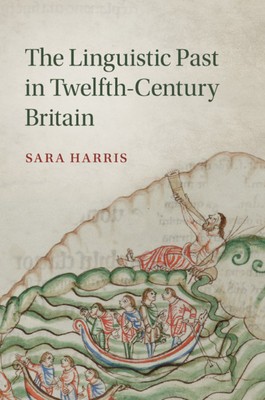
- We will send in 10–14 business days.
- Author: Sara Harris
- Publisher: Cambridge University Press
- ISBN-10: 1316631877
- ISBN-13: 9781316631874
- Format: 15.2 x 22.9 x 1.6 cm, softcover
- Language: English
- SAVE -10% with code: EXTRA
Reviews
Description
How was the complex history of Britain's languages understood by twelfth-century authors? This book argues that the social, political and linguistic upheavals that occurred in the wake of the Norman Conquest intensified later interest in the historicity of languages. An atmosphere of enquiry fostered vernacular literature's prestige and led to a newfound sense of how ancient languages could be used to convey historical claims. The vernacular hence became an important site for the construction and memorialisation of dynastic, institutional and ethnic identities. This study demonstrates the breadth of interest in the linguistic past across different social groups and the striking variety of genre used to depict it, including romance, legal translation, history, poetry and hagiography. Through a series of detailed case studies, Sara Harris shows how specific works represent key aspects of the period's imaginative engagement with English, Brittonic, Latin and French language development.
EXTRA 10 % discount with code: EXTRA
The promotion ends in 20d.22:15:36
The discount code is valid when purchasing from 10 €. Discounts do not stack.
- Author: Sara Harris
- Publisher: Cambridge University Press
- ISBN-10: 1316631877
- ISBN-13: 9781316631874
- Format: 15.2 x 22.9 x 1.6 cm, softcover
- Language: English English
How was the complex history of Britain's languages understood by twelfth-century authors? This book argues that the social, political and linguistic upheavals that occurred in the wake of the Norman Conquest intensified later interest in the historicity of languages. An atmosphere of enquiry fostered vernacular literature's prestige and led to a newfound sense of how ancient languages could be used to convey historical claims. The vernacular hence became an important site for the construction and memorialisation of dynastic, institutional and ethnic identities. This study demonstrates the breadth of interest in the linguistic past across different social groups and the striking variety of genre used to depict it, including romance, legal translation, history, poetry and hagiography. Through a series of detailed case studies, Sara Harris shows how specific works represent key aspects of the period's imaginative engagement with English, Brittonic, Latin and French language development.


Reviews